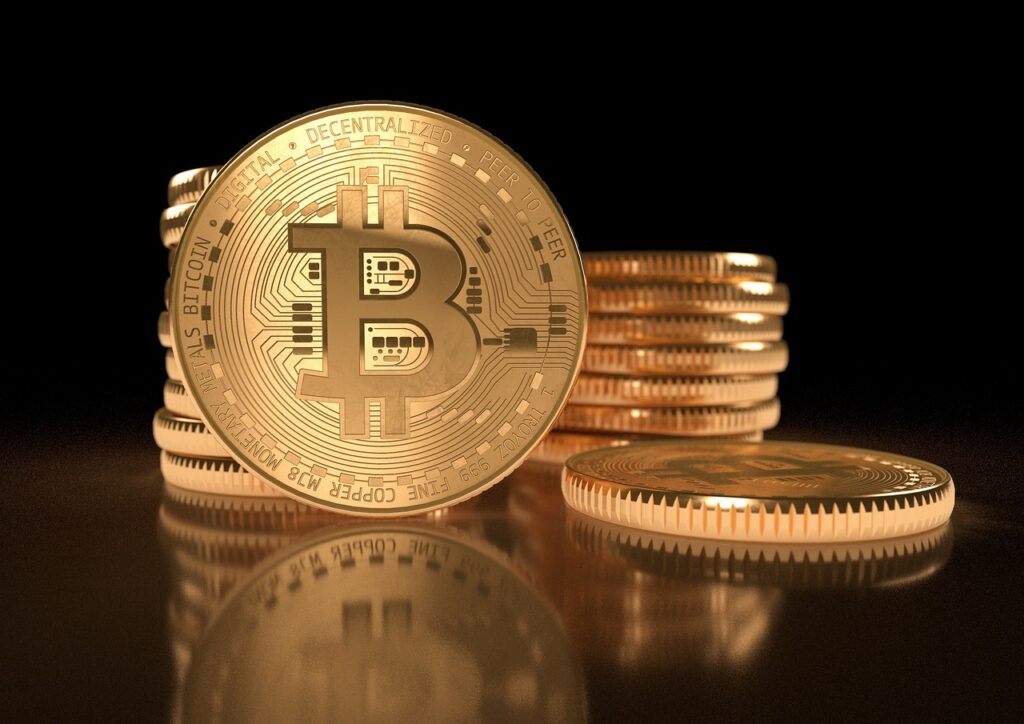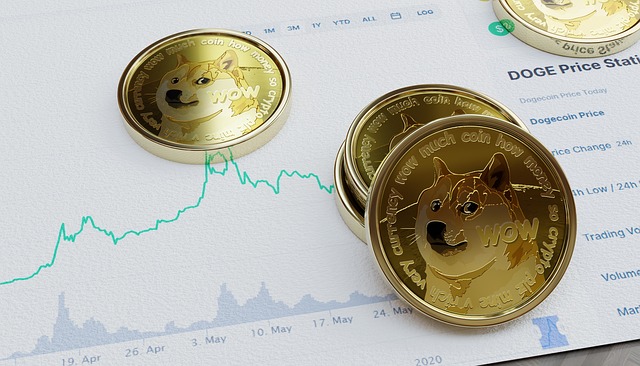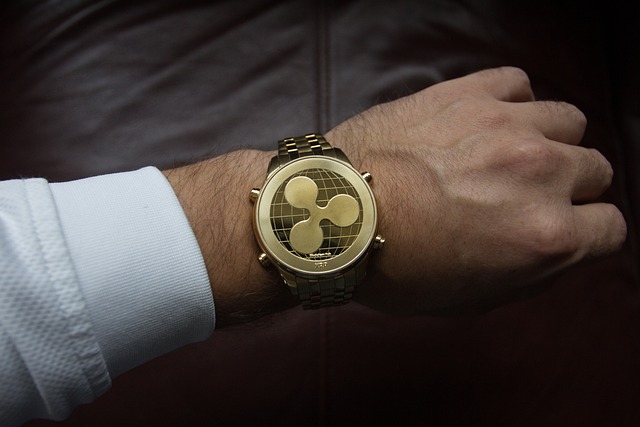Defining Decentralized Finance: A Beginner’s Guide
Defining Decentralized Finance: A Beginner’s Guide

What is Decentralized Finance?
Decentralized Finance, also known as DeFi, is a financial system that operates independently without any central authority or intermediaries. Unlike traditional financial systems where banks and other institutions control the flow of money, DeFi allows users to have direct control over their own funds. This innovative approach to finance is made possible through the use of blockchain technology, which enables smart contracts and decentralized applications (DApps) to facilitate transactions and create financial instruments.
In the world of DeFi, anyone with an internet connection and a digital wallet can participate. This inclusivity is a fundamental principle of DeFi, as it aims to democratize finance and provide financial services to individuals who may not have access to traditional banking systems. Through decentralized lending and borrowing platforms, decentralized exchanges, and other DeFi protocols, users can engage in various financial activities such as lending, borrowing, trading, and investing, all without the need for intermediaries. This not only eliminates the need for third-party trust but also allows for greater transparency and security in financial transactions.
Why is Decentralized Finance gaining popularity?
Decentralized Finance, also known as DeFi, is undeniably gaining widespread popularity in recent years. One of the main reasons behind this surge is the incredible potential it offers to transform traditional financial systems. Unlike traditional banking and financial institutions, DeFi operates on a decentralized network, utilizing blockchain technology to create a more transparent, secure, and accessible financial ecosystem.
Moreover, DeFi eliminates intermediaries, empowering individuals to have full control over their financial transactions. This autonomy and freedom from the constraints of centralized institutions have struck a chord with individuals seeking more inclusive and equal financial opportunities. Additionally, DeFi opens up a world of possibilities for anyone with an internet connection, regardless of their geographical location or financial status. With these benefits, it is no wonder that the popularity of DeFi continues to skyrocket, attracting both seasoned investors and newcomers alike to explore the vast opportunities it offers.
• DeFi offers incredible potential to transform traditional financial systems
• Operates on a decentralized network using blockchain technology
• Creates a more transparent, secure, and accessible financial ecosystem
• Eliminates intermediaries and gives individuals full control over their transactions
• Provides autonomy and freedom from centralized institutions
• Appeals to individuals seeking inclusive and equal financial opportunities
• Opens up possibilities for anyone with an internet connection, regardless of location or status
• Attracts both seasoned investors and newcomers due to its vast opportunities
How does Decentralized Finance work?
Decentralized Finance, also known as DeFi, operates on the principle of blockchain technology to provide financial services without the need for intermediaries like banks or traditional financial institutions. It takes advantage of smart contracts, which are self-executing contracts with the terms of the agreement directly written into code. These smart contracts run on decentralized networks, ensuring transparency, immutability, and security.
In DeFi, users have control over their own funds, as they can directly interact with decentralized applications (dApps) using their digital wallets. These dApps offer a wide range of financial services, such as lending, borrowing, trading, and investing. For instance, individuals can lend their cryptocurrencies through a dApp and earn interest, while borrowers can access funds without having to go through the traditional loan approval process. All transactions and agreements are recorded on the blockchain, creating a transparent and auditable system for all participants.
The advantages of Decentralized Finance
Decentralized Finance, also known as DeFi, offers numerous advantages that are attracting a growing number of individuals and businesses. One major advantage is that DeFi eliminates the need for intermediaries such as banks, allowing for direct peer-to-peer transactions. This not only reduces transaction costs but also enables faster and more efficient financial interactions. Moreover, since DeFi operates on blockchain technology, it benefits from the inherent security and transparency of the distributed ledger, ensuring that financial activities are secure and visible to all participants.
Another advantage of DeFi is its inclusivity. Traditional financial systems often exclude individuals without access to banks or those in underserved regions. DeFi, on the other hand, can be accessed by anyone with an internet connection, opening up financial opportunities to a larger population.

The challenges of Decentralized Finance
While Decentralized Finance (DeFi) has emerged as an innovative and promising concept, it is not without its fair share of challenges. One major challenge is the issue of scalability. As the number of users and transactions on DeFi platforms continues to grow, the underlying blockchain technology may struggle to handle the increased load efficiently. This can result in slower transaction times and higher fees, which hampers the overall user experience and limits the potential widespread adoption of DeFi.
Another challenge faced by DeFi is the issue of interoperability. Currently, most DeFi projects operate on separate and isolated blockchain networks.

The key players in Decentralized Finance
Decentralized Finance, or DeFi, has been flourishing with the rise of blockchain technology. This innovative sector has attracted a diverse range of participants, including individuals, institutions, and technology companies. Let’s take a closer look at some of the key players making waves in the DeFi ecosystem.
Firstly, we have the crypto exchanges that serve as the primary gateway for users to access DeFi protocols. These exchanges, such as Binance, Coinbase, and Uniswap, provide a platform for users to trade cryptocurrencies and interact with DeFi applications. With their user-friendly interfaces and ample liquidity, these exchanges enable seamless onboarding and trading experiences, allowing individuals to explore the world of DeFi with ease.
Secondly, we have the DeFi platforms themselves, which enable users to lend, borrow, and earn interest on their digital assets. Examples of such platforms include Compound, Aave, and MakerDAO. These protocols form the backbone of DeFi by facilitating decentralized lending and borrowing, with interest rates determined by supply and demand dynamics. By eliminating intermediaries and intermediation costs, these platforms offer users greater transparency and control over their financial activities.
In addition to these players, we also find decentralized exchanges (DEXs) like Uniswap, SushiSwap, and PancakeSwap. DEXs facilitate peer-to-peer trading of digital assets directly from users’ wallets, eliminating the need for third-party custodial services. With their automated market-making algorithms and decentralized order books, DEXs provide users with increased privacy, security, and freedom to engage in decentralized trading.
Furthermore, we cannot overlook the importance of blockchain infrastructure providers like Ethereum, Binance Smart Chain, and Polkadot. These blockchain networks serve as the foundation upon which most DeFi projects are built, providing the necessary infrastructure to deploy and execute smart contracts securely. Additionally, they enable the interoperability of different DeFi applications, allowing for seamless integration and collaboration within the ecosystem.
Lastly, we have the decentralized oracle providers, such as Chainlink, Band Protocol, and DIA. Oracles play a crucial role in connecting the world of off-chain data with on-chain smart contracts, ensuring the accuracy and reliability of real-world information used by DeFi protocols. By providing timely and secure data feeds, these oracle providers enable DeFi applications to access external information, such as price data, market trends, and events, enabling the creation of more sophisticated and robust DeFi services.
These are just a few examples of the key players driving the growth and innovation within the DeFi space. However, it’s important to note that the DeFi ecosystem is constantly evolving, with new entrants and collaborations emerging regularly. As the sector continues to mature, we can expect to see even more players making significant contributions to the advancement of Decentralized Finance.
How to participate in Decentralized Finance
To participate in decentralized finance (DeFi), you’ll need a few key ingredients: a reliable internet connection, a compatible digital wallet, and some cryptocurrency to get started. Firstly, ensure that you have a stable internet connection as most DeFi platforms operate online. Without a reliable connection, you may face difficulties accessing and utilizing DeFi services effectively.
Next, you’ll need a digital wallet that can support DeFi transactions.

Lastly, to engage in DeFi, you’ll need some cryptocurrency. Ethereum (ETH) is the most widely accepted cryptocurrency for DeFi applications, but some platforms may also accept other currencies like Binance Coin (BNB) or Compound (COMP). It’s important to research the specific DeFi project you are interested in to determine which cryptocurrencies are accepted.
Remember, participation in DeFi comes with risks, including potential losses due to market fluctuations and contract vulnerabilities. It’s essential to conduct thorough research, fully understand the risks involved, and only invest what you can afford to lose. With the right tools, knowledge, and cautious approach, you can start exploring the exciting world of decentralized finance.
Examples of successful Decentralized Finance projects
One example of a successful Decentralized Finance project is Compound. Compound is a decentralized lending and borrowing platform that allows users to lend out their crypto assets and earn interest. It operates on the Ethereum blockchain and utilizes smart contracts to automate the process of lending and borrowing. Users can deposit their assets into the platform and earn interest rates based on the supply and demand of the asset. This project has gained popularity due to its transparent and efficient nature, providing users with a decentralized alternative to traditional banking.
Another successful Decentralized Finance project is Uniswap. Uniswap is a decentralized exchange protocol built on the Ethereum blockchain. It eliminates the need for intermediaries by allowing users to trade tokens directly from their wallets through smart contracts. Uniswap utilizes an automated market maker system, where liquidity providers pool their assets, allowing users to trade without relying on order books. This project has become widely popular due to its user-friendly interface, lower fees compared to traditional exchanges, and its ability to list a wide variety of tokens.
The future of Decentralized Finance
As we look ahead to the future of Decentralized Finance (DeFi), it is clear that this innovative concept is here to stay. With its ability to revolutionize the traditional financial system, DeFi holds immense potential to reshape the way we interact with money and financial services. As technology continues to advance at an unprecedented rate, we can expect to see even greater adoption and integration of DeFi solutions in the coming years.
One key aspect of the future of DeFi lies in its potential to democratize access to financial services. By eliminating the need for intermediaries and centralized institutions, DeFi opens up opportunities for individuals around the world to participate in the global financial system. With just an internet connection, anyone can engage in activities such as lending, borrowing, investing, and more, without the barriers imposed by traditional banking systems. This decentralization of financial services has the power to empower individuals, particularly those who have been excluded from the traditional system, to take control of their own financial future.
Tips for beginners in Decentralized Finance
For beginners diving into the world of Decentralized Finance (DeFi), it’s essential to start with a solid foundation. Firstly, take the time to thoroughly understand the underlying concepts of DeFi. Educate yourself on blockchain technology, smart contracts, and decentralized applications (Dapps). This will help you grasp the fundamental building blocks of DeFi and make informed decisions about your participation.
Next, it’s crucial to research and select a reliable and user-friendly DeFi platform. Look for platforms that offer secure wallets, easy-to-use interfaces, and a wide range of available assets. It’s advisable to start with smaller investments as you familiarize yourself with the platform and gain confidence in navigating the DeFi space. Additionally, staying updated with the latest news and developments in the DeFi industry is key. Follow reputable sources, join relevant communities, and engage with experienced enthusiasts to enhance your knowledge and stay ahead of the curve. Remember, the path to success in DeFi is built on a strong understanding and continuous learning.
What is Decentralized Finance?
Decentralized Finance, also known as DeFi, refers to a system where financial transactions and services are conducted on a decentralized network, without the need for intermediaries like banks or traditional financial institutions.
Why is Decentralized Finance gaining popularity?
Decentralized Finance offers several advantages, such as increased accessibility, transparency, and potential for higher returns on investments. It also allows individuals to have more control over their financial assets and removes the need for trust in centralized authorities.
How does Decentralized Finance work?
Decentralized Finance works by utilizing blockchain technology to create smart contracts that automate financial transactions and interactions. These smart contracts are executed on decentralized networks, ensuring trust and security without the need for intermediaries.
What are the advantages of Decentralized Finance?
Some advantages of Decentralized Finance include lower fees, faster transactions, global accessibility, increased financial privacy, and the ability to earn passive income through various lending and staking opportunities.
What are the challenges of Decentralized Finance?
Decentralized Finance is still a relatively new concept, and it faces challenges such as regulatory uncertainties, scalability issues, potential security vulnerabilities, and the risk of smart contract bugs or hacks.
Who are the key players in Decentralized Finance?
The key players in Decentralized Finance include decentralized exchanges (DEXs), lending platforms, liquidity pools, stablecoins, and decentralized applications (DApps) that offer various financial services on the blockchain.
How can I participate in Decentralized Finance?
To participate in Decentralized Finance, you need a cryptocurrency wallet, preferably a non-custodial wallet that gives you full control over your funds. You can then interact with different DeFi platforms to trade, lend, borrow, stake, or provide liquidity to earn rewards.
Can you provide examples of successful Decentralized Finance projects?
Sure! Some successful Decentralized Finance projects include Compound, a lending and borrowing platform, Uniswap, a decentralized exchange, Aave, a protocol for decentralized lending and borrowing, and MakerDAO, a decentralized stablecoin platform.
What does the future hold for Decentralized Finance?
The future of Decentralized Finance is promising, with increased adoption and innovation expected. As more people recognize the benefits of DeFi and as scalability and regulatory challenges are addressed, we can anticipate a wider range of financial services being offered on decentralized networks.
What are some tips for beginners in Decentralized Finance?
1. Start with small investments and understand the risks involved.
2. Educate yourself about different DeFi protocols and projects before investing.
3. Use reputable platforms and conduct thorough research before providing liquidity or making investments.
4. Be cautious of potential scams or rug pulls; always verify the legitimacy of projects before participating.
5. Stay updated with the latest news and developments in the DeFi space to make informed decisions.
Todays Featured Product:
Buy, exchange and grow your crypto securely with a Ledger hardware wallet, combined with the Ledger Live app. It’s never been easier to keep your crypto safe and accessible. Buy direct from Ledger.com and get todays Special Offers Here.




